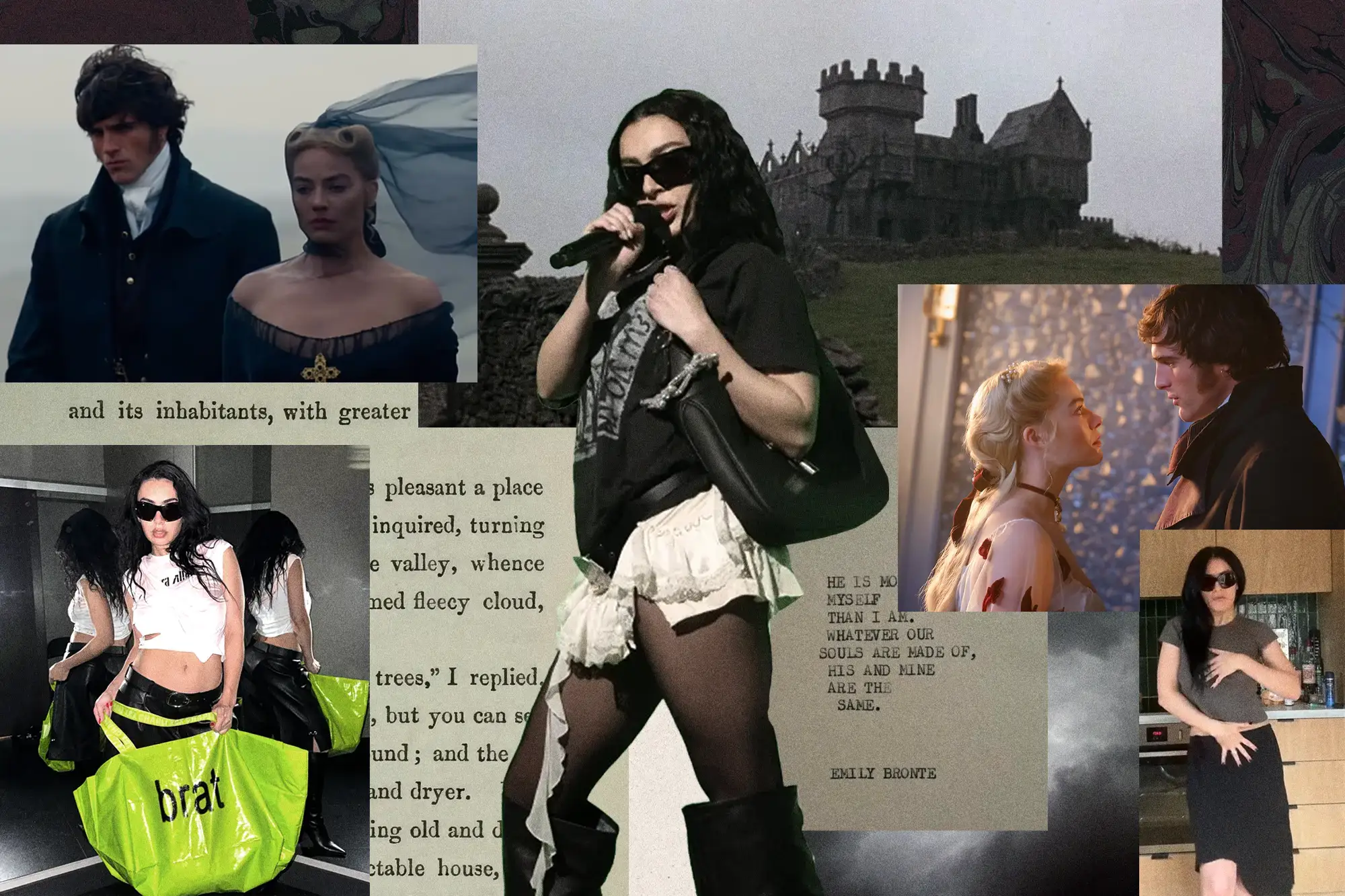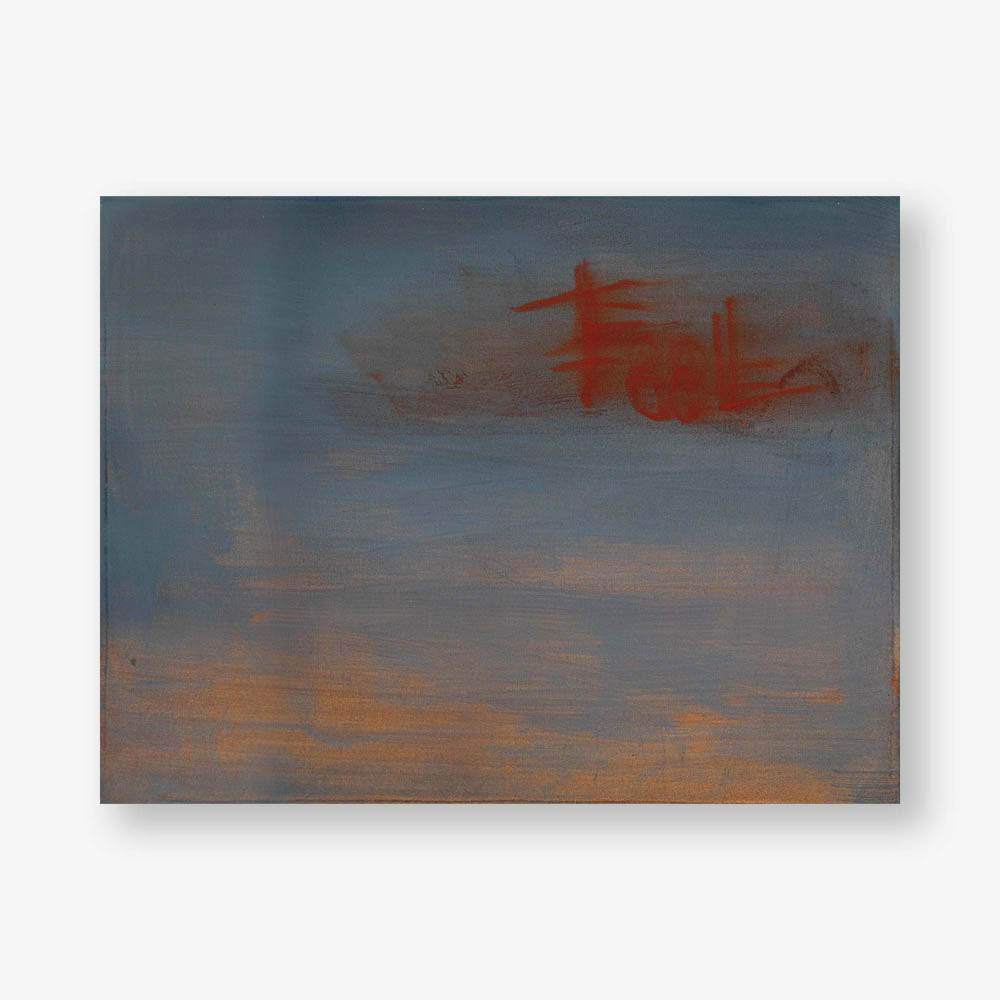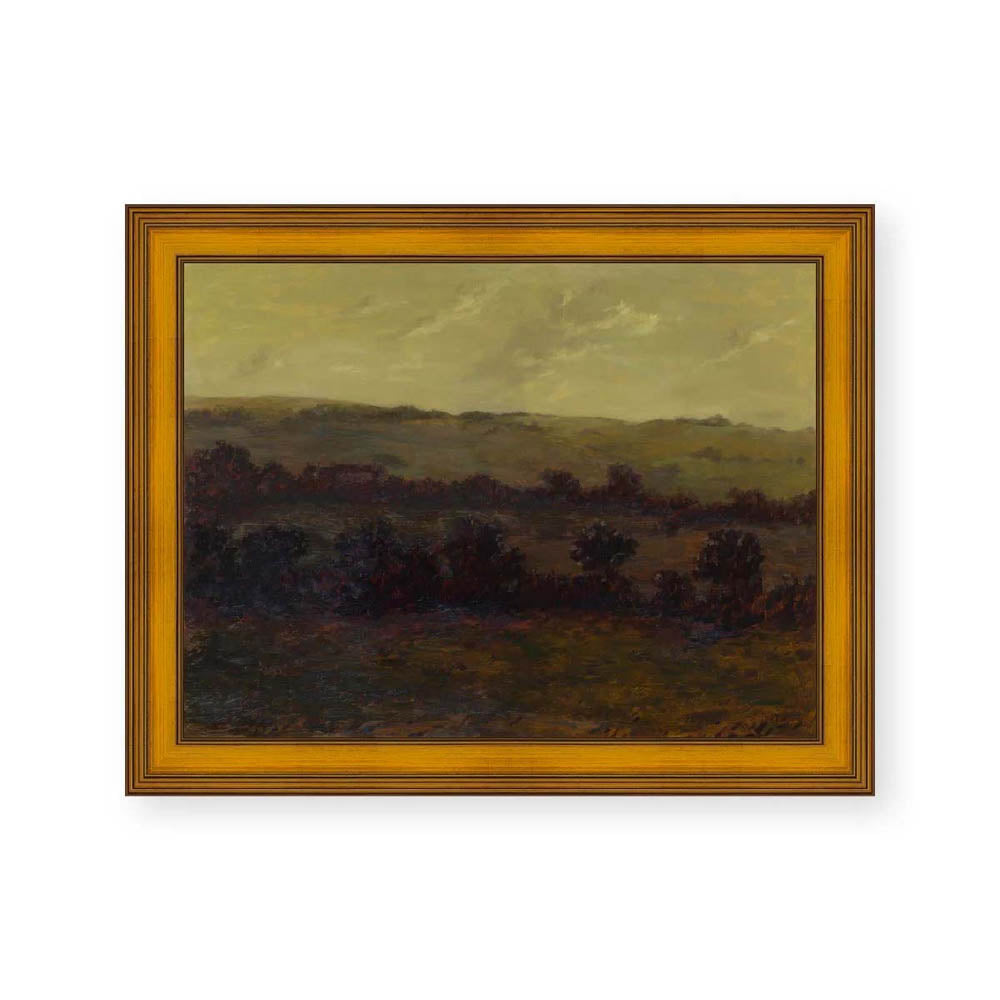It’s not hard to imagine the characters of Emily Brontë’s 1847 novel Wuthering Heights as rotted fruit. Tender skin hides decay and spoils all that it touches. We can trace the blights that bloom back through generations. From the characters’ environment to their relationships, each is strongly shaped by what they inherit. These essential themes are also present in Charli XCX’s massive hit album brat (2024). Instead of on the moors, we’re in the club—but we’re crying either way.

In A Place that Can Make You Change
There are plenty of similarities between brat’s lyrics and Brontë’s themes that might be missed at first glance. For both the novel and the album, setting is a character in and of itself. Charli’s club scenes and raves take center stage. We are enveloped in the pulse of “Club classics” and hear Charli sing about wanting to be blinded by the lights. The song sets the scene, creating an energetic and exciting atmosphere. But underneath the strobe-lit party is discontentment and unhappiness. In “I might say something stupid,” she sings: “wear these clothes as disguise/ just to re-enter the party…I look perfect for the background/ I get nervous sip the wine.” She mentions ripping her tights on a lawn chair, creating an image of a fun night turned sour.
This strong sense of place connects brat’s playful, confident songs (“360,” “Club classics,” “Talk talk,” “Von dutch”) to the album’s incredibly unguarded moments (“Sympathy is a knife,” “So I,” “Rewind,” “I think about it all the time”), juxtaposing high-energy partying with true vulnerability. In her interview with Zane Lowe, Charli said she took a place where parties happen and “told the truth.” brat gives us a peek inside a night where one minute we’re dancing and the next experiencing our deepest grief and insecurities. Charli examines how her experience of fame is defined by wanting to fit in while ultimately feeling like an outsider.
In Wuthering Heights, the setting of the moors and its lack of contact with the outside world keep the characters isolated and borderline incestuous. They are only influenced by each other and their limited set of experiences. The story’s narrator, on first coming to Wuthering Heights, remarks: “In all England, I do not believe that I could have fixed on a situation so completely removed from the stir of society.” Other than the doctor from the nearby town and the novel’s narrator, we hear of no other outsider entering Wuthering Heights and Thrushcross Grange. The novel’s central characters simply don’t have other relationships to experience or learn from.
Like Charli, Brontë’s novel also explores the contrast between liveliness and loneliness. Wuthering Heights is dark and grim, while Thrushcross Grange is brighter and more refined. The attributes of the two houses are transposed onto Heathcliff and Edgar Linton, who are foils for one another. Nelly describes the juxtaposition between Heathcliff and Edgar as “resembling what you see in exchanging a bleak, hilly, coal country for a beautiful fertile valley.”
And while both men are loved by Cathy, she feels for them in very different ways. She says of the men: “I’ve no more business to marry Edgar Linton than I have to be in heaven; and if the wicked man in there had not brought Heathcliff so low, I shouldn’t have thought of it. It would degrade me to marry Heathcliff now; so he shall never know how I love him: and that, not because he’s handsome, Nelly, but because he’s more myself than I am. Whatever our souls are made of, his and mine are the same; and Linton’s is as different as a moonbeam from lightning, or frost from fire.”
Edgar is the golden boy, the civilized one. Heathcliff is the rough, untamed, wild partner. Brontë astutely pairs the love of Cathy and Heathcliff with the threat of destruction. Never able to be realized, their love becomes monstrous, making the characters cruel.

I’ve Been Looking at You So Long Now I Only See Me
Charli’s song “Apple” is an obvious nod to inheriting generational trauma. It’s about seeing yourself in the people who raised you and still being at odds with them, recognizing the similarities that span generations, but ultimately still feeling disconnected and misunderstood. We see her acknowledgement of that trauma and her desire to run away from its lyrics: “I think the apple’s rotten right to the core/ from all the things passed down/from all the apples coming before/I split the apple down symmetrical lines/ and what I find is kinda scary/makes me just wanna drive.” Still, the song includes her wondering: “I want to know where you go/when you’re feeling alone,” showcasing her ultimate desire to find familial connection even if it means looking directly into the rot of the apple, facing the trauma head-on.
Healthcliff’s character has his own inherited traumas to unpack. While his biological parents are unknown, and he’s thrust into a new social world when Mr. Earnshaw takes him from the streets of London as a child. The prejudice he faces from Hindley and his wife, who don’t want him around, is only kept at bay for a time. He’s protected in many ways from the worst of it until Mr. Earnshaw dies and Hindley inherits Wuthering Heights, ceasing Heathcliff’s access to education and treating him like a servant. For part of Heathcliff’s life, he is raised as Cathy’s peer, only to be later diminished, looked down upon, and hated. In “I might say something stupid,” Charli sings, “door is open, let in, but still outside,” which is Heathcliff’s entire existence. He is only ever partially let into the Earnshaws’ world, never fully embraced, even by the person he loves the most. This has lasting effects on Heathcliff’s character, leading him to dedicate his adult life to getting revenge. We see the trauma he inherits played out, and we see him pass that trauma on to the next generation.
Hareton Earnshaw is the first of the next generation to experience Heathcliff’s wrath and revenge. As Hindley’s son, Hareton is hated by Heathcliff on principle. Heathcliff simply cannot allow his tormentor’s son to succeed in any way. After Hindley dies, Heathcliff says, “Now, my bonny lad, you are mine! And we’ll see if one tree won’t grow as crooked as another, with the same wind to twist it!” Heathcliff hopes the apple won’t fall far from the tree and does all he can to ensure the same rot is present in Hareton as it was in Hindley. But the next generation works to rid themselves of the corruption. Hareton is able to make friends with Cathy’s daughter, also named Catherine. After a forced marriage to Heathcliff’s dying son to ensure that Heathcliff could gain her land, young Cathy loses interest in Hareton. However, she eventually makes peace with him and helps him learn to read, and we learn at the end of the novel that they have fallen in love and are to be married and move to Thrushcross Grange together.

Just Do it On Repeat
One of the most interesting things in comparing these works is their mirrored cyclical natures.
brat ends with a track that samples the first song on the album, putting the album and all its complexities into an endless loop. The remix album, brat and it’s completely different but also still brat, gives us a brilliant reimagining of the same songs, adding richness and texture to the music while still focusing on the same core experience.
In Wuthering Heights, we see the next generation make their own choices. The second generation of characters could be called “Cathy and Heathcliff and it’s completely different but also still Cathy and Heathcliff.” Cathy’s daughter is forced to marry Heathcliff’s son, and then, after his death, falls in love with Hareton Earnshaw, whose upbringing and disposition are very similar to Heathcliff’s. Even the name “Catherine Earnshaw” comes full circle. We see the first Catherine Earnshaw become Catherine Linton, who gives birth to another Catherine Linton. Then she takes the surname Heathcliff, and, at the end of the novel, is engaged to become Catherine Earnshaw once again. The woman’s name returning to itself is an important full-circle moment for a character who had so much happen to her outside of her control.
Both brat and Wuthering Heights illustrate how inherited and experienced trauma impact a person’s behavior. With brat, Charli uses the insecurities she’s accumulated from her family, society, and her environment and turns them into pulsing club beats that share her true experience. In Wuthering Heights, we see the harshness that shapes Heathcliff and the way he lives with that trauma, inflicting it onto other people, just like a rotting apple. Despite Heathcliff’s best efforts, the next generation of Earnshaws and Lintons forgive each other and choose to act with love, instead of the hardness and cruelty they inherited from their families and circumstances. Both works show undiluted commitment to authenticity, even when that authenticity is unlikable, unpalatable, and unaccepted. We see the cycle of trauma, how it can be passed on, yes, but also how it can be overcome.




















